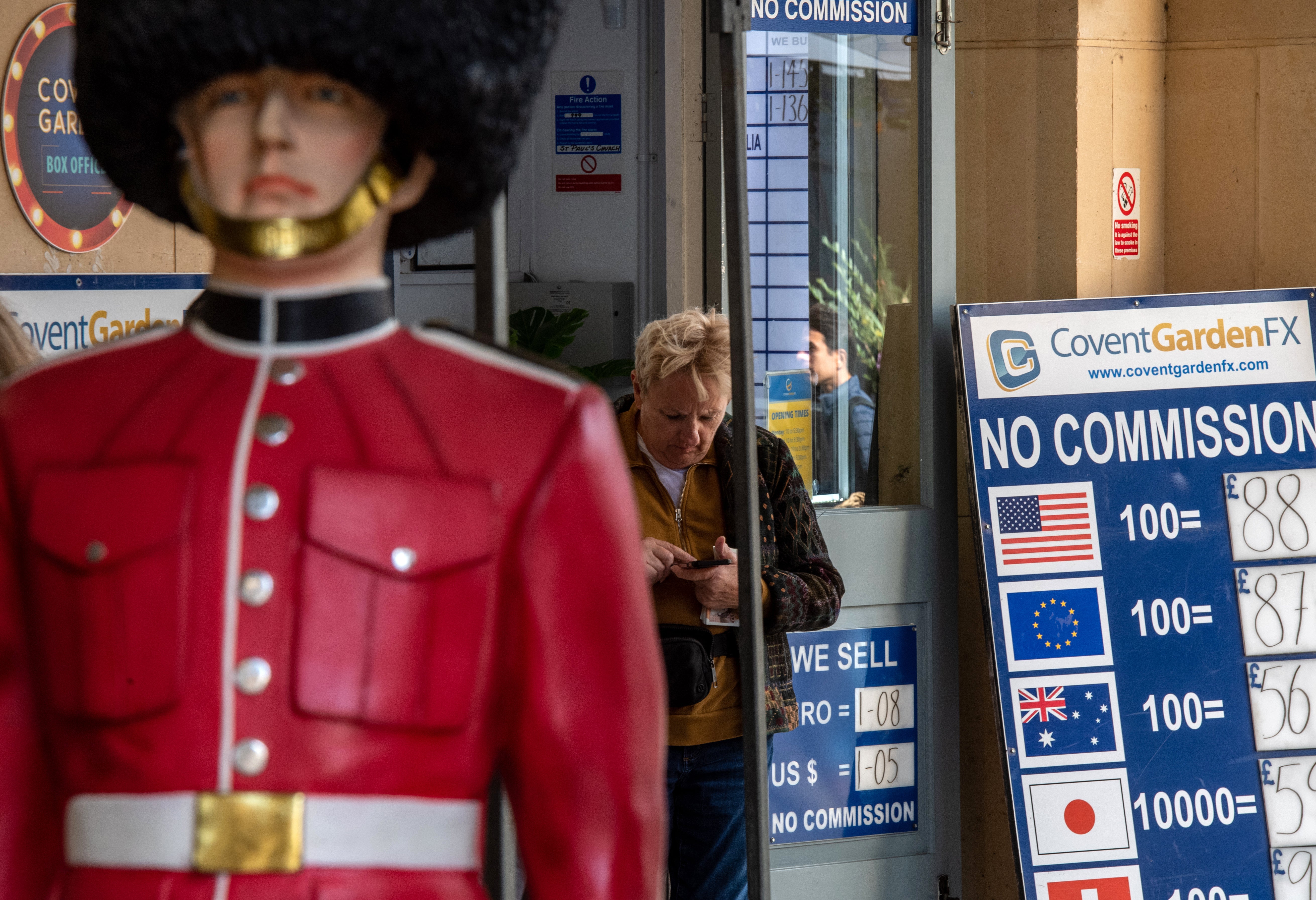What does shorting the pound mean? How hedge funds are taking advantage of the weak sterling
What does shorting the pound mean? What is currency speculation? What is parity?
Your support helps us to tell the story
From reproductive rights to climate change to Big Tech, The Independent is on the ground when the story is developing. Whether it's investigating the financials of Elon Musk's pro-Trump PAC or producing our latest documentary, 'The A Word', which shines a light on the American women fighting for reproductive rights, we know how important it is to parse out the facts from the messaging.
At such a critical moment in US history, we need reporters on the ground. Your donation allows us to keep sending journalists to speak to both sides of the story.
The Independent is trusted by Americans across the entire political spectrum. And unlike many other quality news outlets, we choose not to lock Americans out of our reporting and analysis with paywalls. We believe quality journalism should be available to everyone, paid for by those who can afford it.
Your support makes all the difference.Hedge fund managers reportedly made huge profits from shorting the pound as it plummeted to near parity with the US dollar following chancellor Kwasi Kwarteng’s September “mini-Budget”.
The latest fall in sterling came on 11 October after Andrew Bailey, the Bank of England governor, announced that he was ending an emergency support package for pension funds at risk of collapsing following turmoil in the markets in the aftermath of Mr Kwarteng’s statement to MPs.
Here we explain what’s going on in the currency markets:
What is shorting?
Short selling is when investors speculate on the falling price of a stock or other security price. They do this by borrowing shares in a firm that they believe will decrease in value.
They then sell these borrowed shares to buyers at the current market price. They are betting that the price will then fall and they can buy back the borrowed stock at a discounted price, before they have to return it. The profit they make is the difference between what they made for selling the stock and the price they paid for buying it back.
Most short selling happens with stocks and shares, but you can also short sell on other financial markets - such as currency trading markets.

What does shorting the pound mean?
Shorting the pound means taking a position that will make you profit when the value of the pound falls.
Traders do this on foreign exchange markets, or Forex, where currencies are converted into other currencies.
Forex is traded in pairs of different currencies. So for example, you could trade a pair with the pound as a base currency (the first currency) and the US dollar as a quote currency (the second currency).
Traders who made money would have sold pairs with the base currency GBP before the crash, or early on in the fall of the pound against the dollar.
It is also possible to short currency pairs using other financial instruments called deritatives. These effectively allow you to take a bet on the movement of the underlying asset without owning it.
This sort of trading can make markets very volatile, especially when lots of people pile into the same trade.

What is currency speculation?
Speculation in the world of finance effectively refers to taking a risky bet. Speculators conduct financial transactions that have a risk of losing value, but which also have a chance of significantly gaining value.
Investors are looking at how the price of the thing they’ve bought will change, and trying to make money off that change. Speculators are not looking to actually buy the product outright, but rather want to make money of the fluctuations in the market.
So for example in currency speculation, the investor will be looking to buy a certain currency so that they can sell it at a higher price in future. They are not looking to buy it so they can pay for an import.
What is parity?
There has been a lot of talk in recent days about parity between the British pound and the US dollar. Parity simply means the dollar and the pound being the same price.
At the moment it costs around $1.10 to buy £1. But if the currencies reach parity, this means $1 will be worth £1.






Join our commenting forum
Join thought-provoking conversations, follow other Independent readers and see their replies
Comments